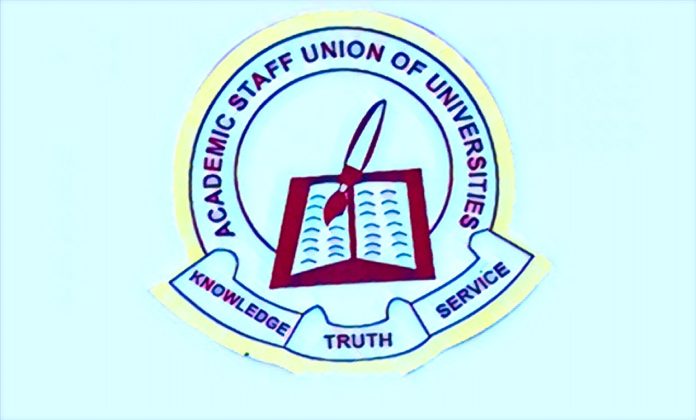Key Points
-
ASUU-UI says collective bargaining in universities has stalled despite repeated negotiations.
-
Lecturers allege unpaid allowances and delayed promotions undermine stability in higher education.
-
Educational sector observers warn that weak collective bargaining threatens institutional credibility.
The University of Ibadan’s Academic Staff Union of Universities (ASUU) says that the Nigerian Federal Government still treats collective bargaining with “token gestures” instead of actually carrying it out.
Prof. Olufemi Olaofe, the union’s chairperson, told reporters that the government sets up negotiation committees, but agreements are still not being carried out in a meaningful way.
Olaofe said, “We go to meeting after meeting, but our problems are still not solved.” He also said that lecturers are still waiting for the full implementation of conditions that were agreed upon in the past. Some of the complaints are about unpaid allowances, missed promotions, and a lack of infrastructure at federal universities. This latest escalation comes during a two-week warning strike called by ASUU across the country to push for the government to follow through on agreements made years ago.
The record of FG’s collective bargaining is being looked at
The union says that the key phrase “collective bargaining in universities” is more talk than action when promises are not kept. ASUU-UI says that even though there have been many negotiation panels led by former ministers and senior statesmen like Dr. Yayale Ahmed and Prof. Munzali Jibrin, not many of the reports have led to action. A recent study by the university’s administrative office shows that at least four major committees have been formed since 2020, but none of them have been able to keep up with their work.
The union points out that the government keeps saying it is willing to negotiate but doesn’t follow through on the terms. Olaofe said, “The government sets up a committee, the committee submits a report, and then everything stops.” This is similar to what former VC Prof. Idowu Olayinka said earlier this month.
University workers want real collective bargaining
The ASUU-UI says that the main cause of the problems is how the government handles collective bargaining in universities, which they say hurts both trust and academic stability. The teachers talk about problems like 35 percent of wage awards that haven’t been paid, academic allowances (EAA) that haven’t been paid, and promotions that have been delayed for years. The union says that only about 45% of the agreed-upon allowances have been paid so far.
According to a report by the Punch news, the Ministry of Education, led by Minister Dr. Tunji Alausa, says that major obligations have been met, such as giving N50 billion to schools as part of the 2025 budget. He said that collective bargaining is still a top priority, but he also said that some union demands go beyond what the agreements cover.
What this means for changes in the education sector and workers’ rights
This deadlock shows a structural problem in Nigeria’s higher education system. When people think that collective bargaining isn’t working, it hurts staff morale and makes academic disruptions happen more often. Dr. Ifeoma Nwokedi, an education economist with the Nigerian Economic Summit Group, says that unresolved labour talks “erode the credibility of public universities and discourage investment in academic infrastructure.”
Students and staff at the University of Ibadan say the latest warning strike could make the 2025/26 session last longer than it already has because of previous work stoppages. People who work at universities say that the effects could last into next year’s academic calendar because admission cycles, grant proposals, and research projects are all on hold.
The union has told the government that they have until the middle of November to come up with a real plan for how to carry out the agreements that are still open. If you don’t do this, the strike could go on forever. Both sides are still talking, but trust is still hard to come by.



